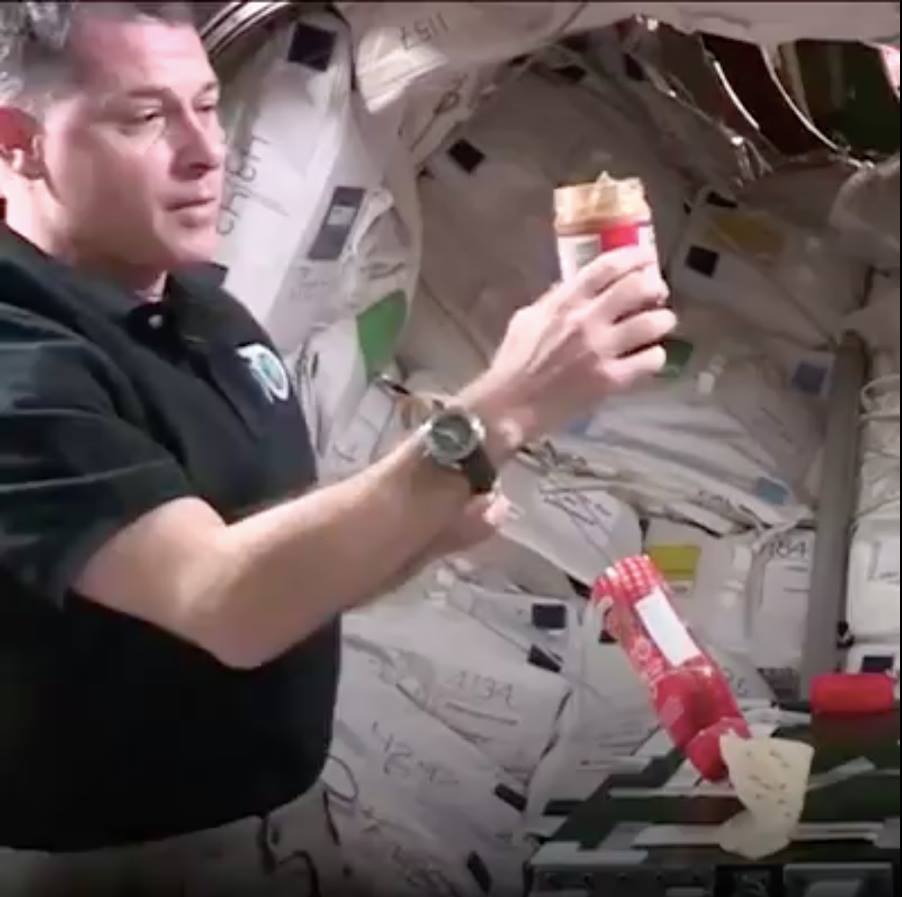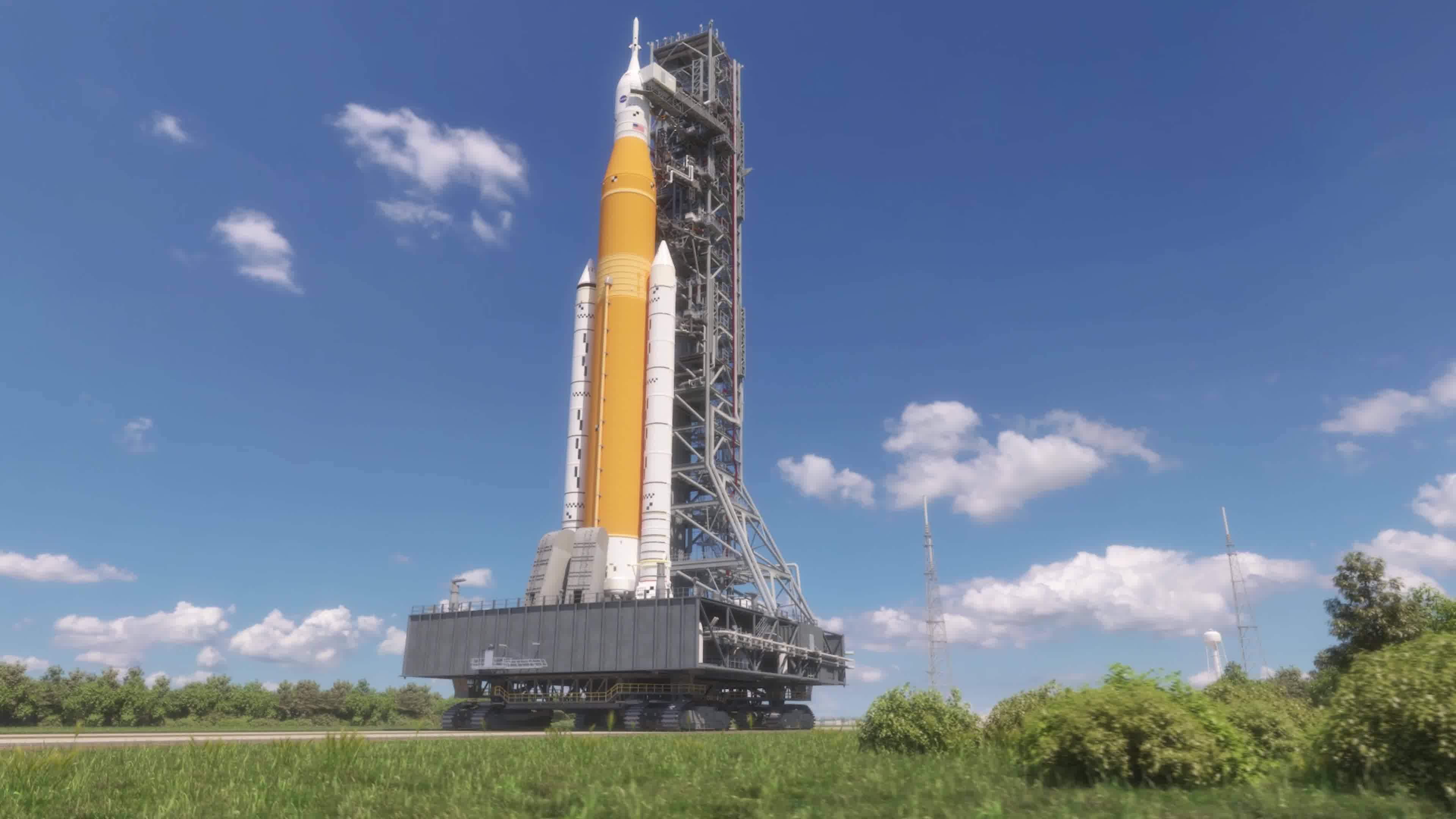Page 9304
Nov 18, 2018
NASA Image of Merging Galaxy Clusters Looks Suspiciously Like the USS Enterprise
Posted by Michael Lance in categories: physics, space travel

Two possibilities: Either the image captures two massive galactic clusters in the process of colliding, or NASA is covering up the existence of a starship so big it’s several million light years long.
Humanity’s current understanding of physics may suggest faster-than-light travel is impossible, but researchers here on Earth can still observe happening in places much too far away to ever actually visit (and generally only what they looked like in the distant past). One of them is a galactic collision that, at least from our planetary vantage point, looks an awful lot like a craft going where no man has ever gone before.
Nov 18, 2018
Rocket Science in 60 Seconds: EM-1 and the Power Needed to Get to the Moon and Beyond
Posted by Michael Lance in categories: science, space travel
Click on photo to start video.
NASA’s Rocket Science in 60 Seconds gives you an inside look at work being done to explore deep space. In the latest episode you can hear Rob Stough, payload utilization manager for our NASA’s Space Launch System, talk about the power we needed to boost the rocket into space and send NASA’s Orion Spacecraft to the Moon. Watch: https://youtu.be/0VB9aI3xVFs
Nov 18, 2018
Elon Musk says a ‘radical change’ is coming to SpaceX’s monster Mars rocket design
Posted by Genevieve Klien in categories: Elon Musk, robotics/AI, space travel
- In a tweet, Musk revealed that “radical change” was coming to the design of the Big Falcon Rocket (BFR), which is meant to go to Mars.
- The tweet appeared to indicate that the second stage of the Falcon 9 will now be used for component tests for the BFR, and that the company is abandoning plans to make the second stage of Falcon 9 reusable.
- Musk has said that his “aspirational” goal is to launch an unmanned cargo mission to Mars by 2022.
In a tweet, Saturday, SpaceX founder Elon Musk announced that “radical change” was coming to the design of the Big Falcon Rocket (BFR), that is being made in an attempt to go to Mars.
Musk left out any specifics of his plan, simply announcing that “SpaceX is no longer planning to upgrade Falcon 9 second stage for reusability” and would be “Accelerating BFR instead.” Musk called the new design “very exciting” and “delightfully counter-intuitive.”
Nov 18, 2018
Marvel at The Plans For Japan’s Futuristic New Space Research Center
Posted by Klaus Baldauf in categories: futurism, space travel
The architectural design behind Japan’s new space research center is mind-boggling. The futuristic building will incorporate elements of spacecraft design, which emphasize light weight and high functionality.
Nov 18, 2018
Ban on ‘gene drives’ is back on the UN’s agenda — worrying scientists
Posted by Derick Lee in categories: biotech/medical, genetics, government
Government representatives from nearly 170 countries will this month consider whether to temporarily ban the release of organisms carrying gene drives — a controversial technology that can quickly propagate a chosen gene throughout a population. The technique has the potential to eradicate disease, control pests and alter entire ecosystems, but with unpredictable consequences — leading some groups to call for a global moratorium on its field applications.
Research is moving fast on the divisive genetic technology, which could help to eradicate diseases but also risks altering ecosystems in unpredictable ways.
Nov 17, 2018
Eight science apps that turn your phone into a laboratory
Posted by Nicholi Avery in categories: mobile phones, science
Apps can turn your smartphone into a scientific instrument. These programs let you spot birds, identify stars, learn about the elements, and more.
Nov 17, 2018
Michael Fossel — Defeating Aging
Posted by Montie Adkins in categories: biotech/medical, education, ethics, life extension, neuroscience
https://www.youtube.com/attribution_link?a=P-wiCEov7oQ&u…ture=share
Michael B. Fossel, M.D., Ph.D. (born 1950, Greenwich, Connecticut) was a professor of clinical medicine at Michigan State University and is the author of several books on aging, who is best known for his views on telomerase therapy as a possible treatment for cellular senescence. Fossel has appeared on many major news programs to discuss aging and has appeared regularly on National Public Radio (NPR). He is also a respected lecturer, author, and the founder and former editor-in-chief of the Journal of Anti-Aging Medicine (now known as Rejuvenation Research).
Prior to earning his M.D. at Stanford Medical School, Fossel earned a joint B.A. (cum laude) and M.A. in psychology at Wesleyan University and a Ph.D. in neurobiology at Stanford University. He is also a graduate of Phillips Exeter Academy. Prior to graduating from medical school in 1981, he was awarded a National Science Foundation fellowship and taught at Stanford University.
In addition to his position at Michigan State University, Fossel has lectured at the National Institute for Health, the Smithsonian Institution, and at various other universities and institutes in various parts of the world. Fossel served on the board of directors for the American Aging Association and was their executive director.
















